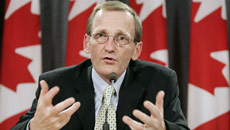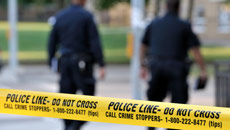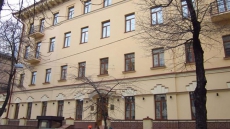VANCOUVER - The British Columbia government is boosting funding for addictions research and treatment in the province, with money directed at testing of a drug that can block the effects of heroin and alcohol.
Health Minister Terry Lake made the announcement in Vancouver's St. Paul's Hospital on Wednesday, saying the additional $3-million investment will allow the province to expand addiction-medicine education for health professionals, making it the largest program of its kind in North America.
The funding is in addition to another $3 million that was donated by Goldcorp Inc. in 2012.
Half of the new funds will go towards training addiction care providers across the province, while the other half will fund clinical trials and a new medicine program that will focus on early intervention, Lake said.
"There is, as you know, a lot of competition for health care dollars, but we recognize addictions, mental health issues are complex problems that we need to really get good, evidence-based decision-making behind us as we look to put resources there," Lake told reporters.
Dr. Evan Wood, a University of British Columbia professor and a program co-director with the BC Centre for Excellence in HIV/Aids, said one of the clinical trials will involve Vivitrol, a monthly injection already used in the U.S. to treat opioid and alcohol addictions.
"In the case of heroin addiction, people who withdraw and go through detox, we know the likelihood of relapse to heroin addiction is 80 per cent," Wood said. "With this medication, it entirely blocks the effects of heroin."
Wood estimated it would take roughly three years to complete the trial.
Gerrard Prigmore, a family and addiction doctor from Prince George, B.C., said he welcomes the focus on substance abuse training, particularly because rural communities suffer from a shortage of addiction care providers and services.
"Very often, when I see patients in the detox unit, they've waited two weeks to get a bed," he said. "They then travel 15 hours on a bus to get from their remote, rural community into the detox unit. They've often been self-medicating on the bus, having a quick (drink) every few miles."
Prigmore said northern patients admitted into a treatment program in the Lower Mainland tend to fall back into old habits and spiral back into addiction when the return home.
NDP mental health and addictions critic Sue Hammell said $3 million does not go very far, but she applauded the Liberal government for treating addiction as a health matter, rather than a criminal issue.
"We spend huge amounts of money in terms of incarceration ... as well as policing and the criminal justice system. All of this is a large, large drain on our society and all of us would want to see life improved not only for those people who are addicted, but the taxpayer."
Earlier this year, the province introduced a new stabilization unit at St. Paul's Hospital to treat those with severe mental illnesses or addictions. It also established a new community outreach team that connects mentally ill patients leaving local emergency departments to community services.
The move came after Vancouver's mayor and the police chief called for help to deal with a dramatic rise in police incidents involving those with severe mental health issues or substance abuse.





